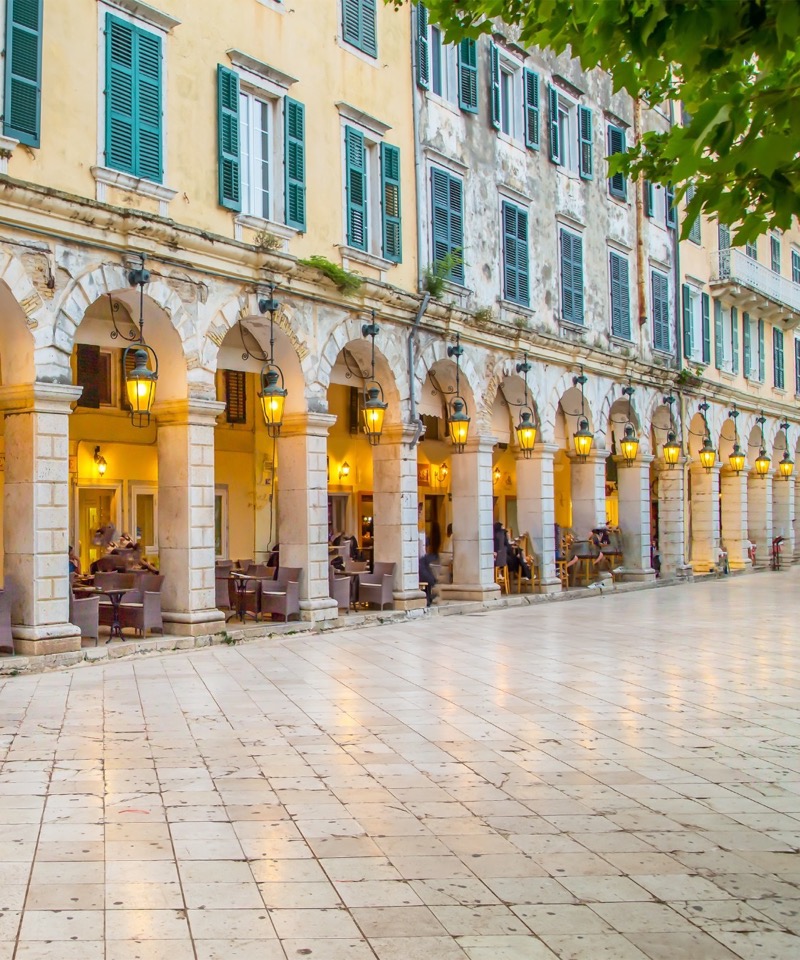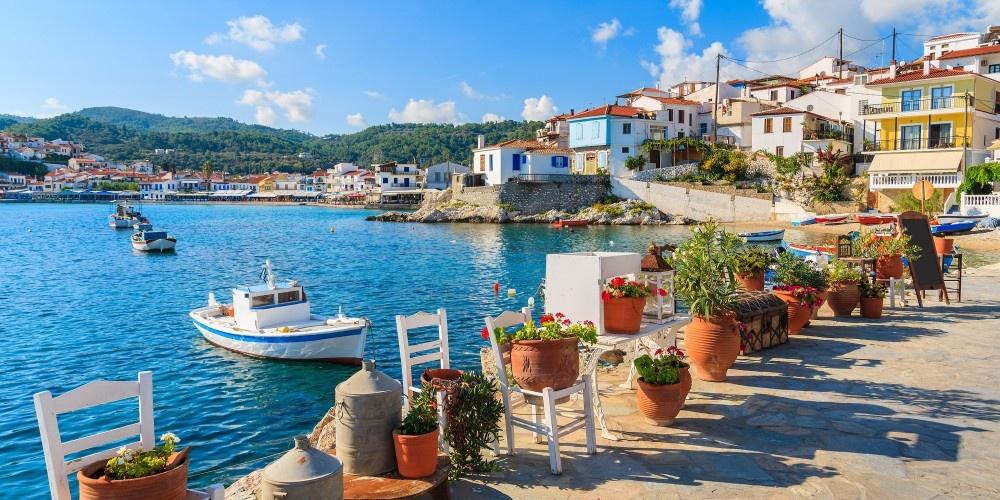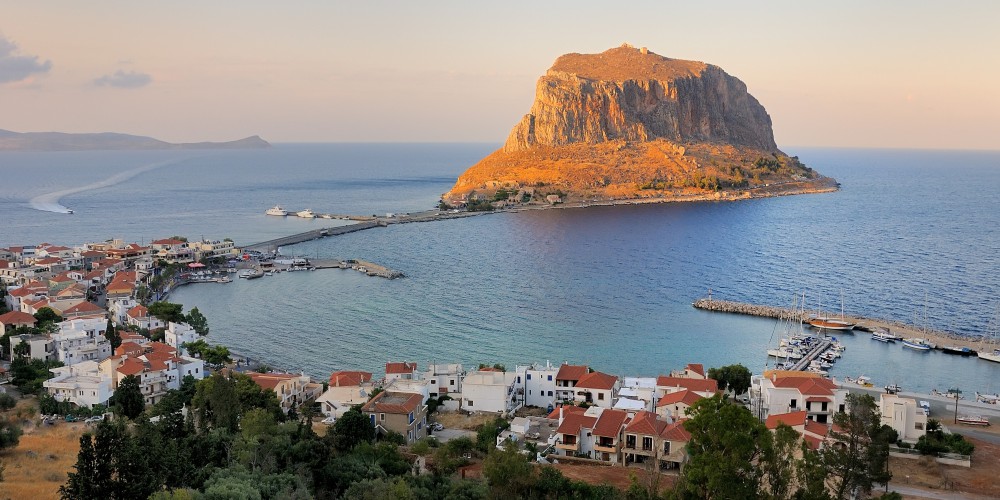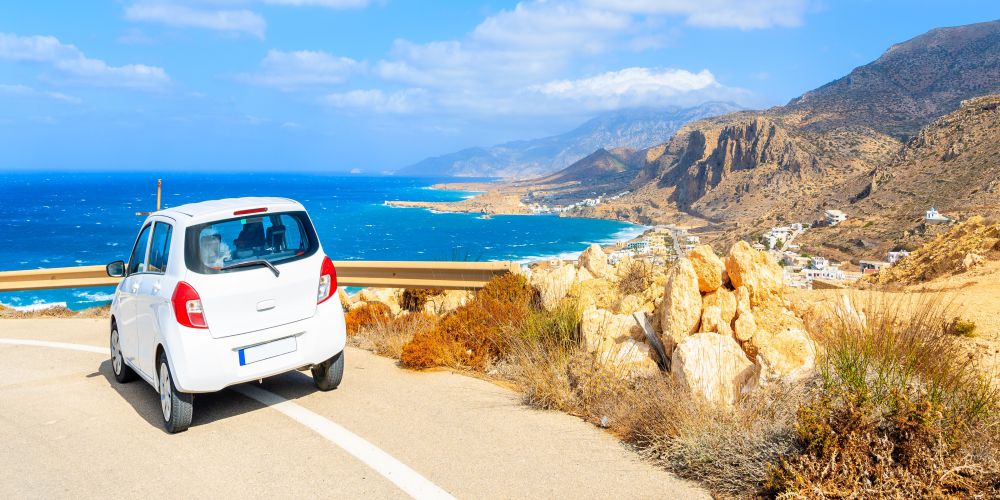
Useful Greek Words and Phrases for your Trip to Greece
Key Takeaways
- The pronunciation of Greek words may differ slightly, as the Greek language has various regional dialects, and .
- The vast majority of Greeks know English, so you'll face no problem communicating your needs.
- A simple 'Kalimera' will get you far, as hospitality runs in Greeks' blood, and your effort to learn a bit of the language will be much appreciated.
- If you find yourself needing to speak Greek, make Google Translate your best friend!
The word 'barbarian' derives from the Greek word ‘barabaros,’ which means 'one who babbles in an unknown language.'
People who spoke in languages that the ancient Greeks could not understand were considered 'babbelers.'
Thus, according to ancient Greek standards, if you choose one of our Greece vacation packages or Greece tours, visit Greece, and don’t speak a few words, you are a barbarian!
In order to make sure you can practice a bit before you come to Greece, and to ensure you avoid the babbler status, look at some of the most useful Greek words and a few phrases that will help you get by during your stay.
Kalimera/Kalispera/Kalinihta
Translation: Good morning, good dawn/Good evening/Goodnight
Break Down: Kalo/i = good, mera=day, nihta=night
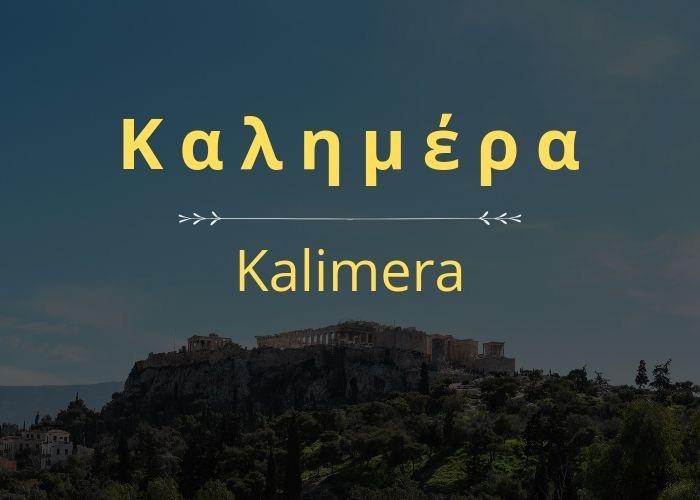
If you’re wondering how to say good morning in Greek, it’s really easy: just say ‘kalimera.’ It can also be loosely translated into ‘have a good day’ in Greek.
Please note that ‘good morning’ in Greece goes best with a smile!
Although these may seem like formal ways to say greetings to someone, these are possibly some of the most commonly used words in modern-day Greece.
‘Kalispera’ means ‘good afternoon’ in Greek and is appropriate to say standard greeting only after 12.00 pm and until nighttime.
We know that ‘kalinihta,’ which means goodnight in Greek, is particularly hard to say, however, it is worth the effort.
Greeks are a feisty lot but are also very polite and are always quick to wish everyone and anyone well.
You will hear this over and over again in many different forms (if you hear Kalo/i before a word, you can be sure it is something positive, as ‘kalo’ means ‘good’ or ‘great’ in Greek!).
Yia!
Translation: Hello
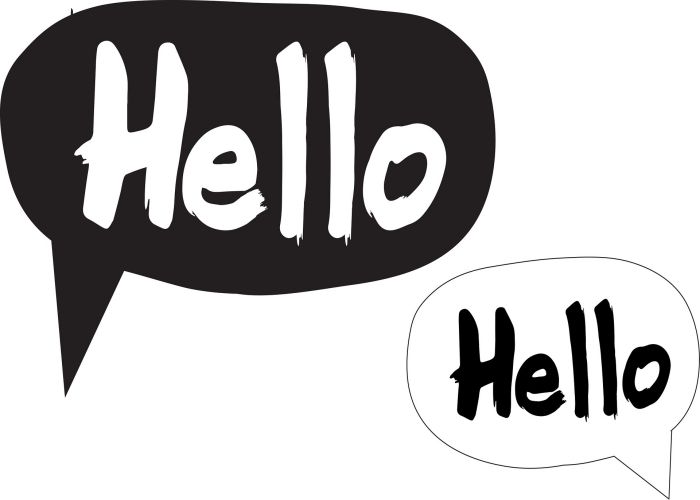
This is the Greek word for ‘hello.’
No matter when or where you come across someone, saying ‘yia’ will earn you a smile and probably a ‘yia’ back. Hello in the Greek language can be expressed in many different ways.
Hey, there is a reason why Greek is considered one of the most difficult languages in the world! Regardless, ‘yia’ is the easiest and most all-encompassing one you can use.
So, if you don’t remember how to say good morning in Greek or how to say good afternoon in Greek, a simple ‘yia’ will save the day.
Parakalo/Efharistw/Parakalo
Translation: Please/ Thank you/ you’re welcome

The word ‘parakalo’ is used in many ways in Greek - it is even used to answer a phone call or a knock at the door.
Perhaps the most common way you can use it, however, is in order to say ‘please’ and ‘you are welcome.’ If you are buying a coffee or cheese pie, add ‘parakalo’ at the end of your request to be polite.
When you get your coffee or cheese pie, say ‘efharisto,’ one of the hardest words to get your tongue around.
This is how to say thank you in the Greek language and earn an extra smile from your server.
The Greek thank you from the lips of a foreigner is especially endearing, as it shows the effort they have put into being polite.
We love it when travelers make an effort to not speak English, but in our local language too!
If you want to be extra polite, you can even say ‘efharisto para poli’ which translates to ‘thank you very much’ in Greek.
Of course, as mentioned before, you can also say ‘parakalo’ to express gratitude.
Thankfully, 'you’re welcome' in Greek is rather easy to say. So, if you hear someone say ‘efharisto,’ you reply with ‘parakalo’!
Signomi
Translation: I’m sorry/excuse me

The Greek language is weird in the sense that it uses the same word to express many different feelings and meanings. ‘Signomi’, for example, is the Greek way of saying both ‘I am sorry’ and ‘excuse me.’
Therefore, if you are being polite in an overcrowded room and want to make your way to the bathroom, for example, you will have to walk through the people while saying ‘signomi’ to anyone you bump into.
At the same time, if you want to express repentance for your behavior, 'signomi' is also the way to do so. One little word can have so much meaning behind it!
Poso kani?
Translation: How much is it?

Unless you’re Kim Kardashian or the Queen of England, this is one of the most useful phrases you will need during your trip to Greece.
‘Poso kani?’ is how you say ‘how much does it cost’ in Greek, and it can be used for anything.
If you can’t find the price of the item you’re about to buy or you don't have a clear idea of how much a service costs, don’t hesitate to ask this question.
It is the best way to avoid tourist traps and make sure you spend your money wisely.
Not to mention that with this question you can also figure out how much a trip to Greece costs!
Pos eisai?
Translation: How are you?
Breakdown: pos=how eisai=you are

Keeping with the theme of politeness, you are sure to hear the question directed to you at least a couple of times a day.
These are some of the most considerate words in Greece. You might even hear the question ‘pos eisai esi?’. It means exactly the same, as ‘esi’ means ‘you’ in Greek, so don’t get these basic words confused.
It’s just how you say ‘how are you?’ in greek. If you want to know how to say in Greek that you’re good, ‘eimai kala’ or ‘eimai ok’ will do the trick.
'Good' in Greek can be expressed through a multitude of words, but these two will get the point across more than adequately.
Pou einai?
Translation: Where is….
Where is the Acropolis? Where is the nearest souvlaki shop?
Perhaps you won’t have excelled enough in the Greek and the Greek alphabet to ask those crucial questions in full, but how about just the first -and most important- part of the sentence?
If you have a map or a picture of a souvlaki wrap in your pocket and are looking for your way around, grab the nearest bystander, point to where you want to go, and say the magic words 'pou einai'?
Tha ithela ena freddo espresso/cappuccino parakalo!
Translation: I would like a cold espresso/cappuccino, please!

Is it close to 40 degrees Celsius in the middle of Greek summer and you are looking for something cold to drink to start your day?
It’s a good thing you’re in Greece because this is perhaps the best place to get an iced coffee.
Greek coffee is a very special and necessary part of the average Greek’s consumer habits, so you probably won’t go a block without finding a place that sells it.
You can have iced espresso or iced cappuccino (with a bit of cinnamon on top) even with inexpensive coffee machines.
Please remember that ‘ena’ means one in Greek, so if you want more than one, you have to replace this word with another one or a hand gesture.
All you have to do is say: 'Tha ithela ena freddo espresso/cappuccino parakalo'.
Your server’s next question to you will be: Zahari? Which means 'sugar?' So, if you really want to up your game, see below how to order your coffee just how you like it.
- Black (no sugar): Sketo
- Sweet (2 sugars): Glyko
- Very Sweet (2+sugars): Poly Glyko
Nai, Thelo/ Ohi, Den Thelo

Translation: 'Yes, I want / No, I don’t want'
‘Yes, I want a piece of baklava’ will definitely be something you will want to say at some point during your trip to Greece.
‘Nai’ may sound more like no to English speaking backgrounds, so get your ear used to that sound meaning 'yes'!
And If someone tries to push that baklava on you, it is probably because you said 'no' instead of the Greek word 'ohi' - another difficult word to pronounce.
The Greek ‘yes’ and ‘no’ will prove valuable during your stay, so even if you don’t remember anything else, make sure to jot these ones down!
Useful Greek phrases in case of an emergency

If you find yourself in a difficult or unexpected situation, which we hope you won’t, you need to be prepared to communicate your trouble through this basic vocabulary of Greek phrases.
They may prove to be the best Greek phrases in certain situations.
The Greek word for ‘help’ is ‘voithia’. Say it whenever you need it, and helpful people will come to the rescue.
Another one of the most useful Greek travel phrases is ‘eho xathi,’ which means ‘I’m lost’ and will earn you directions to your desired destination or even, in some cases, even a ride there.
Fun fact: If you’re wondering how to say ‘Greece’ in Greek, you’ll be surprised to know it is actually nothing like the English word.
Greece is ‘Ellada’ in Greek, which means that ‘Hellas’ is actually a much more accurate name for the country than the one that prevailed throughout history.
Final Thoughts
If you want something, you have to ask for it! These basic Greek words will hopefully help you get around our magnificent country with ease, even if you speak English exclusively.
You’ll be able to get your point across and save yourselves from any difficult situation that might come upon you or a person around you.
And if verbal communication fails you, don't worry, that's what body language is for! With a good mood and a bit of patience, you'll go far in Greece!







